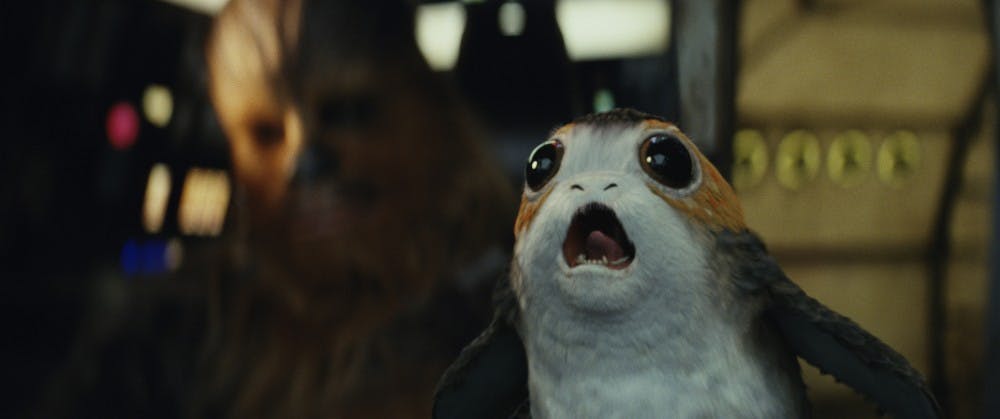WARNING: SPOILERS FOR "THE LAST JEDI"
Watching “The Last Jedi” on opening night made me feel like a kid watching the original trilogy on VHS. Like the Force, writer/director Rian Johnson successfully balanced true emotional depth with a surprising amount of humor that was somewhat unexpected. While one of the biggest criticisms of “The Force Awakens” was that it had an eerily similar plot to the original "Star Wars," trilogy “The Last Jedi” subverts the narrative of what a “Star Wars” movie should actually be by getting at the root of what “Star Wars” truly is. Johnson gives it an irreverent tone to the point where some fans have become uncomfortable, which is why some of the responses have been negative.
One of my favorite aspects of the movie was Luke’s character development since audiences saw him defeat the Empire over 30 years ago. The “new hope” that he was once dubbed is now a tired, beaten-down old man who acts like he wants no part of this new franchise reboot. It’s only when he comes in contact with Rey, this generation’s “new hope,” that we are reminded about what “Star Wars” is all about once we get to the marrow of the story.
“Star Wars” is not relegated to just being about the Skywalkers, but the whole fictional galaxy as well, including the fact that hope can come from anywhere. Johnson wanted to stress that all the sacred lore that follows “Star Wars” is simply that: lore. He expands our minds of what “Star Wars” should be by going against typical resolutions. Who are Rey’s parents? Nobodies. Who is Snoke? He was killed before we ever got a chance to ask him. Does Finn and Rose’s plan to disable the New Order’s tracking device end in victory? No, it actually ends in failure, with a whole lot of Resistance fighters dying in the process.
Still, “The Last Jedi” can’t escape some of its passing similarities to “The Empire Strikes Back” in its tone and story structure, but also in its approach to not diving too deep into fan service. J.J. Abrams raised many questions in “The Force Awakens," but Johnson chose not to answer them. By leaving those questions unanswered, Johnson proved that The Force and space aliens can be enough on their own. It's not the answers or the questions in “Star Wars” that matter, but simply seeing a galaxy far, far away with lightsabers.
“The Last Jedi” succeeded by upping the stakes in the “Star Wars” universe and not giving us our parents' “Star Wars” movie or even our own, but something completely different in which we can lose ourselves.
For a different take on "Star Wars: The Last Jedi," see Darby Hallman's review.

